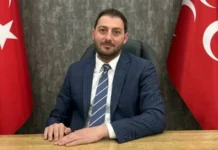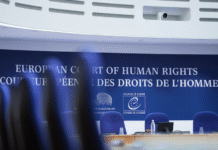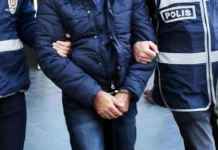Journalists Cevheri Güven and Yüksel Durgut and former diplomat Rumi Ünal have revealed their experiences in the Turkish prisons where they were incarcerated in the aftermath of a July 2016 coup attempt, in a new documentary released on YouTube.
Titled “When I Was in a Cell,” the movie was filmed in a former Gestapo prison in Germany as part of a documentary series launched by the Tenkil Museum, an initiative dedicated to documenting the individual tragedies of Turkey’s post-coup purges.
“As part of standard [operating] procedure, you must see a psychologist once a month in Silivri Prison,” Güven said, referring to what is now known as Marmara Prison, notorious for the incarceration of political prisoners. “I once told the psychologist that I’d forget how to talk. When you don’t have anyone to talk to, you start talking to the walls.”
Durgut revealed the details of a surgery for cardiovascular disease he underwent during his incarceration and said gendarmes waited with him right up to the moment he was given anesthesia, despite the objections of nurses about the need to keep the room sterilized.
Back in prison after the operation, Durgut was put in a cell with bloodied bed sheets where someone with hepatitis was held before him. He was deprived of needed medical dressing and critically important hydration.
“When we first entered prison, we could see the sky,” Ünal said, talking about his time in Ankara’s Sincan Prison. “But after a while, they covered the courtyard with bars. It had been open for years. But now, we had to look at the sky from behind bars as well. We were completely enclosed in a cage. This had a big effect on me.”
The former prisoners said their incarceration was aimed at causing their psychological and mental collapse and recounted the ways they tried to cope with it.
“I’d look at myself in the mirror and ask, ‘Are you okay?’,” Durgut said.
“What political prisoners are going through in such places should be continuously brought to mind,” Güven said. “That’s why I care about these places so much.”
Güven, Durgut and Ünal were imprisoned as part of the Turkish government’s crackdown on the faith-based Gülen movement.
Turkish President Recep Tayyip Erdoğan has been targeting followers of the Gülen movement, inspired by Turkish Muslim cleric Fethullah Gülen, since the 2013 corruption investigations, which implicated then-prime minister Erdoğan, his family members and his inner circle.
Dismissing the investigations as a Gülenist coup and conspiracy against his government, Erdoğan designated the movement as a terrorist organization and began to target its members. He intensified the crackdown on the movement following the abortive putsch in 2016 that he accused Gülen of masterminding. Gülen and the movement strongly deny involvement in the coup attempt or any terrorist activity.
In addition to the thousands who were jailed, scores of other Gülen movement followers had to flee Turkey to avoid the government crackdown.















